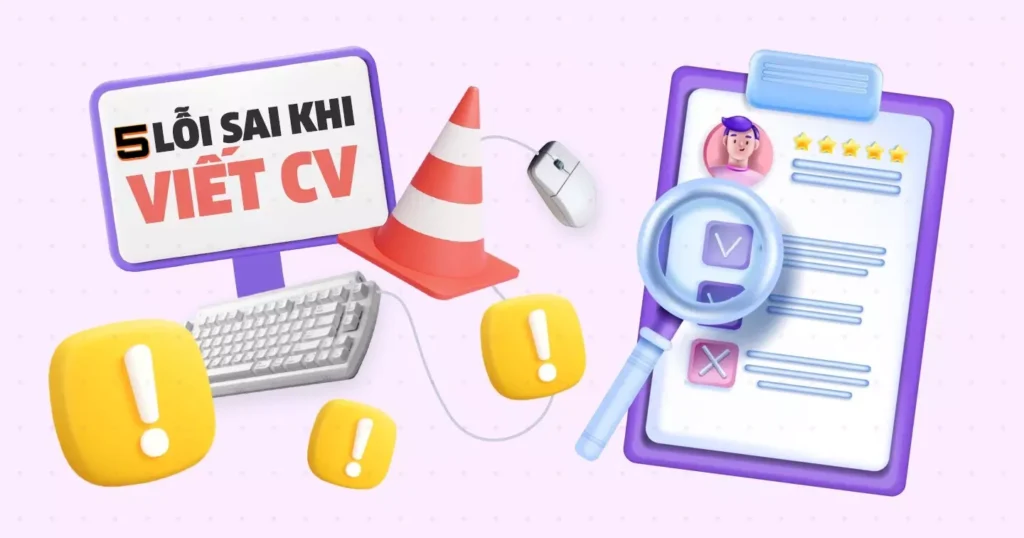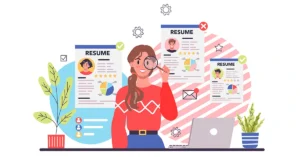In fact, according to Sarah Berry, it is not the big problems that ruin CVs, but the smallest, most overlooked mistakes. Let’s find out the common mistakes in CVs, Sarah Berry will show you the most common “pitfalls” that candidates often fall into:
1. Not providing appropriate information:
Ten years ago, it was acceptable to have a one-size-fits-all CV, but in today’s increasingly competitive job market, a tailored “dress” is essential. A CV keeps you current and highlights how you can help a particular company. A generic CV says: I need a job, help me. A good CV and cover letter say: I love your company, you have a problem to solve and I’m the best person for the job. Take the time and effort to demonstrate your ability to fit the job. Focus on the company, not your needs, and only then will your message be heard by the employer.
2. Do not answer the questions asked in the recruitment notice:
You often skip questions because you are in a hurry or you are trying to avoid doing it. Don’t wait until the interview to show how good you are. Read the whole job ad and write down their specific requirements. What personal qualities are they looking for; what skills are considered most important; the role of practical experience. You need to understand exactly what the employer is looking for, not your own. Your CV should answer specific questions: how, what, where and when. Too long: How long is your CV? The ideal length is 2-3 pages and a cover letter is 1 page. If you are fresh out of university, you will have little to say, otherwise don’t cram too much into your CV. A page with valuable information is definitely better than a long list of irrelevant things that the employer will easily “throw” aside. 3. Putting information in the wrong order:
The introduction is one of the most important parts of a CV. However, many job hunters hide personal information at the end of the CV, while others leave out details such as age, family situation, and contact information. “Selling yourself” is a vital goal in CV writing, but most candidates bombard the reader with qualifications, education, and work history. Candidates forget to mention the product they are selling. It is safe to say that the most important part of a CV is the skills section – the product you are selling. You need to clearly define your level of professionalism and ability. Be convincing and make sure the reader sees that investing in your skills is the best choice.
4. Outline the learning process:
How long has your education been? You try to list all your knowledge and achievements. This sometimes makes employers question your level of professionalism.
Remember that qualifications only matter when it comes to convincing the reader of your suitability, and employers are looking for people who are “marketable.” So, focus on the facts, and try to demonstrate your “marketable” skills by highlighting your relevant skills and experience. Don’t bother the employer with your high school education, unless it’s your highest educational credential or you’re looking for a new job. The focus should be on your accomplishments, not on dates. 5. Too much detail about hobbies:
Hobbies don’t need to be on your CV. Why should employers care about your soccer skills? Leave your hobbies out of your CV, but make sure your CV still has personality. You can list traits that demonstrate your personal strengths and your ability to adapt. This will make your message more attractive and convincing. Don’t include a cover letter. Making a request is not easy, especially when your current job is not very stable, the pressure is now on the need to find a new job. Wrap up your CV with an effective cover letter. Express your desire to find a job by highlighting your skills and professionalism. Spend 75% of the letter talking about the employer, not about you.
Finally, review your CV carefully. Is it good enough, positive and assertive enough? Will it beat your competitors or be surpassed by them? If you are sure that your CV clearly defines your strengths, values and professionalism, you will soon get an interview and a chance at a good job.




